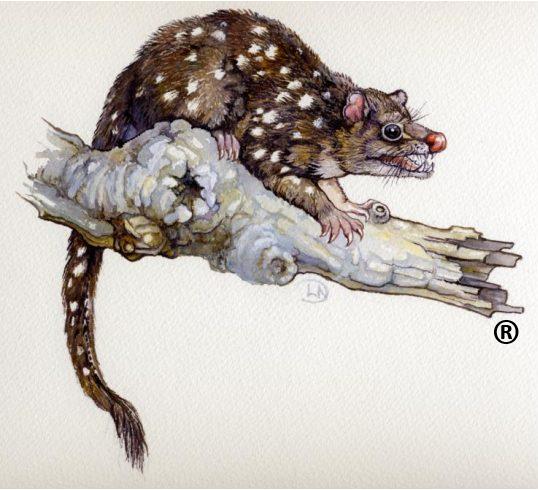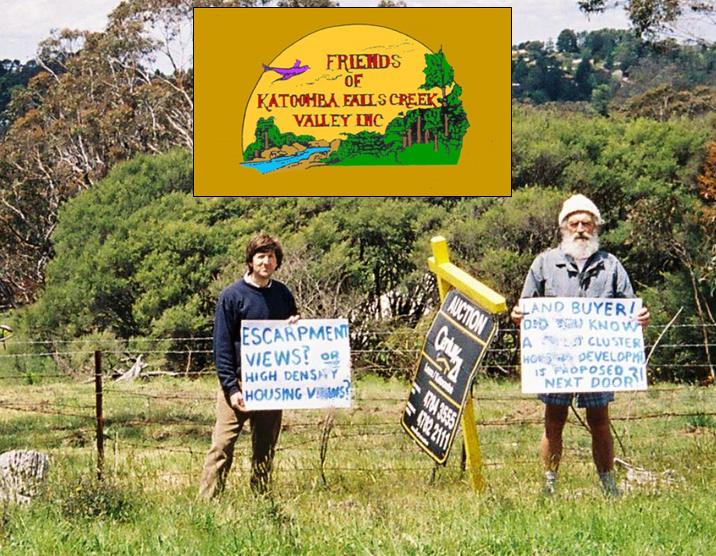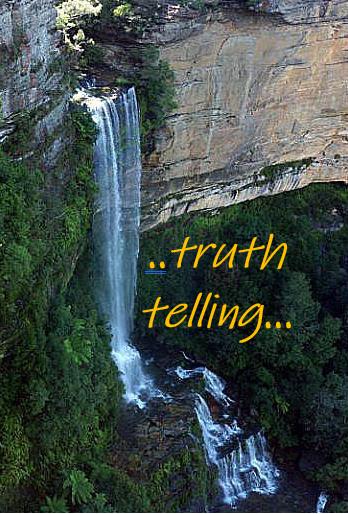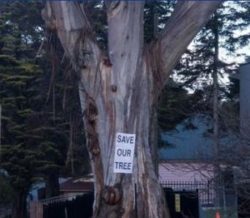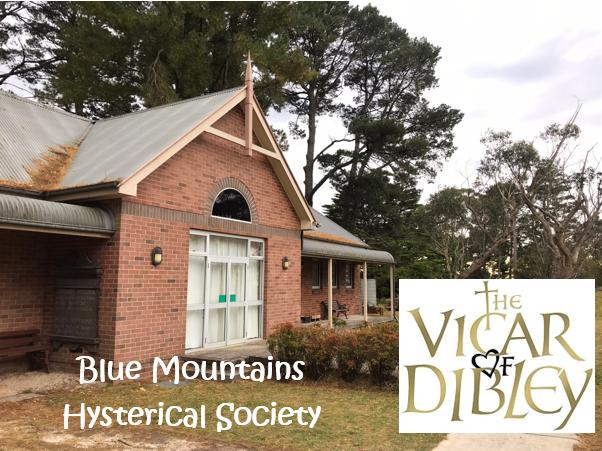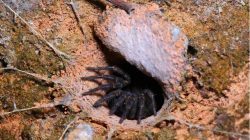Cargill Palm Oil is a corporate hate crime
Thursday, February 23rd, 2012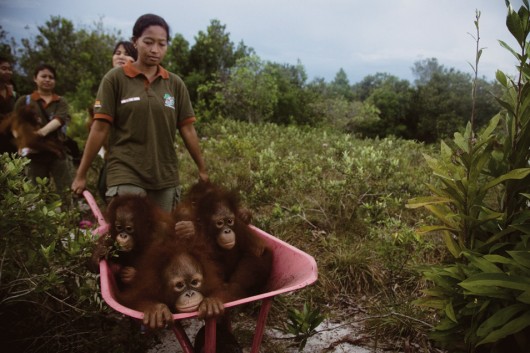 Their ancient rainforest home clearfelled for bloody Palm Oil,
now these Orang-utans are homeless in their own homeland
[Source: ^http://www.pdnphotooftheday.com/2010/05/4673]
(Click photo to enlarge)
Their ancient rainforest home clearfelled for bloody Palm Oil,
now these Orang-utans are homeless in their own homeland
[Source: ^http://www.pdnphotooftheday.com/2010/05/4673]
(Click photo to enlarge)
.
MUARA TAE, EAST KALIMANTAN (Borneo, Indonesia):
The fate of a Dayak indigenous community, deep in the interior of East Kalimantan (Borneo) demonstrates how Indonesia must safeguard the rights of indigenous people if it is to meet ambitious targets to reduce emissions from deforestation.
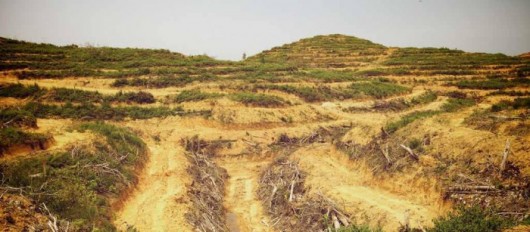 Cleared land at Muara Tae
(c) EIA/Telapak
Cleared land at Muara Tae
(c) EIA/Telapak
.
The Dayak Benuaq of Muara Tae, in West Kutai Kabupaten (Indonesia), today face a two-pronged assault from palm oil companies aggressively expanding into their ancestral forests. Together with Indonesian NGO Telapak, the community is manning a forest outpost around the clock in a last ditch attempt to save it from destruction.
The London-based Environmental Investigation Agency (EIA) has witnessed at first-hand the Dayak Benuaq’s struggle, and how their sustainable use of forests could help Indonesia deliver on its ambitious targets to reduce greenhouse gas emissions.
EIA Forests Team Leader Faith Doherty said: “There are more than 800 families in Muara Tae relying on the forests for their food, water, medicine, culture and identity. Put simply, they have to keep this forest in order to survive.
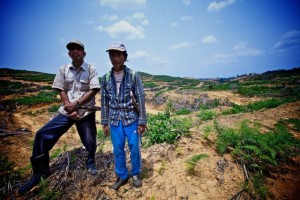 Villagers on cleared land at Muara Tae
(c) EIA/Telapak
Villagers on cleared land at Muara Tae
(c) EIA/Telapak
.
“The rhetoric from the President of Indonesia on curbing emissions by reducing deforestation is strong but on the front line, where indigenous communities are putting their lives at risk to protect forests, action is sorely missing.
“Giving these communities, such as the Dayak Benuaq, the rights they deserve is a vital step to reduce catastrophic levels of deforestation in Indonesia.”
President Yudhoyono has pledged to reduce carbon emissions across the archipelago by 26 per cent by 2020 against a business-as-usual baseline, alongside delivering substantial economic growth.
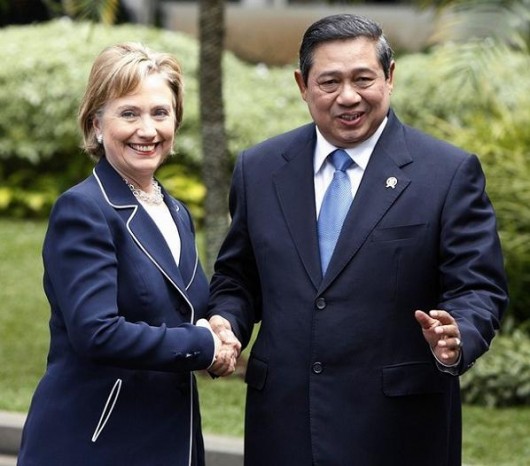 Self-serving bullshit artist
– take your pick
Self-serving bullshit artist
– take your pick
.
Plantation expansion will inevitably be a significant element of growth, but it has historically been a major driver of emissions and it is widely acknowledged that in order avoid them, expansion must now be directed to ‘degraded’ lands.
As a result of weak spatial planning, however, the forests of Muara Tae are identified as ‘APL’, a designation meaning they are not part of the national forest area and are open to exploitation. The theft of indigenous forests also raises serious questions as to what form of ‘development’ these plantations offer.
In indigenous communities such as the Dayak Benuaq of Muara Tae, Indonesia has perhaps its most valuable forest resource. It is due to their sustainable methods, honed over generations, that the forest even remains.
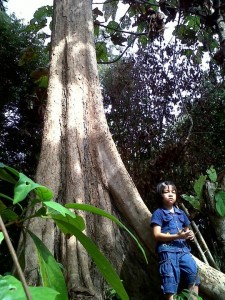 Benuaq girl and ncap payang tree
(c) EIA/Telapak
Benuaq girl and ncap payang tree
(c) EIA/Telapak
.
Telapak president Ambrosius Ruwindrijarto said:
“Together with the community, we have not only been protecting the last forests but also planting new Ulin and Meranti saplings to enhance it. These people are the true guardians of the forest and their fate is entwined with it.”
Muara Tae has lost more than half of its land and forests during the past 20 years to mining companies. The impact has been tangible; the villagers’ water source has dried up and they must now routinely make a 1km journey to collect clean water.
The remaining forest is home to a large number of bird species including hornbills, the emblem of Borneo. There are about 20 species of reptiles and it is also a habitat for both proboscis monkeys and honey bears.
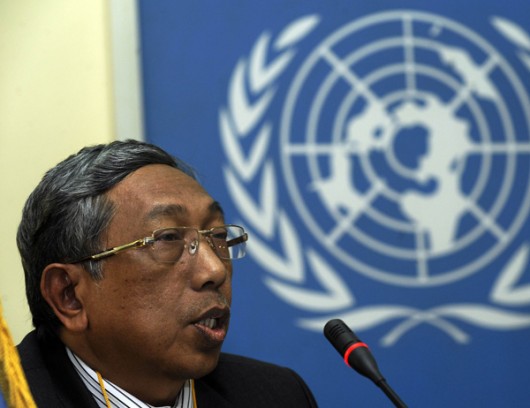 Indonesia’s Environment Minister Gusti Hatta,
all talk..so…’what does an Orang-Utan look like?‘
.
Indonesia’s Environment Minister Gusti Hatta,
all talk..so…’what does an Orang-Utan look like?‘
.
The latest land-grabs have taken place since January 2010, when the local Bupati (regional government official), Ismail Thomas, issued plantation permits to two palm oil companies: Malaysian-owned PT Munte Waniq Jaya Perkasa (PT MWJP) and PT Borneo Surya Mining Jaya, a subsidiary of Sumatran logging, mining and plantation conglomerate Surya Dumai.
While the Norwegian Government has been instrumental in financially backing efforts to reduce deforestation in Indonesia through the REDD+ initiative, it has also invested in the parent company of PT MWJP through its sovereign wealth fund.
Pak Singko, a leader of the Dayak Benuaq of Muara Tae, said: “We are calling for help from people everywhere in protecting our forests and ancestral land. We are being squeezed from all sides by mining and plantation companies.
.
“This is the last remaining forests that we have and the only land we have to survive.
If my forests are gone, our lives will end.”
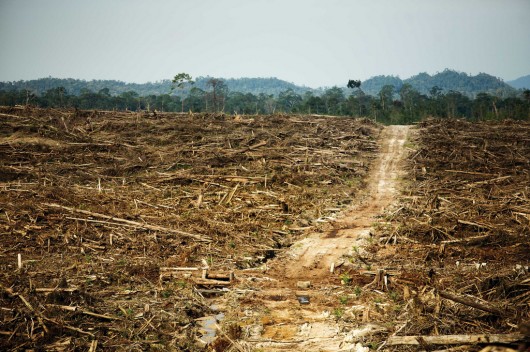 Cargill’s ecological facism for its self-serving Palm Oil
The destruction of primary rainforest by Duta Palma. West Kalimantan, Borneo.
Cargill was a key purchaser of palm oil from this notorious rainforest destroyer up until 2008.
Cargill’s ecological facism for its self-serving Palm Oil
The destruction of primary rainforest by Duta Palma. West Kalimantan, Borneo.
Cargill was a key purchaser of palm oil from this notorious rainforest destroyer up until 2008.[Source: Photo: David Gilbert/RAN, ^http://www.flickr.com/photos/rainforestactionnetwork/5551935164/] (Click photo to enlarge)
.
The above photo is from an investigative report from Rainforest Action Network that presents evidence that (US conglomerate) Cargill is operating two undisclosed palm oil plantations in West Kalimantan, Indonesia.
 Cargill’s pathetic claim of its Corporate Responsibility in Indonesia
Cargill’s pathetic claim of its Corporate Responsibility in Indonesia
[Source: Cargill corporate website: ^http://www.cargill.com.au/en/index.jsp].
.
When William Wallace Cargill founded our company in 1865, he deliberately set out to ensure that we earned and maintained a reputation for integrity, which he saw as a key differentiator in those times.
Corporate responsibility is part of everything we do. It is a company-wide commitment to apply our global knowledge and experience to help meet complex economic, environmental and social challenges wherever we do business. It is a process of continually improving our standards, our actions and our processes. Corporate responsibility extends not only to our own operations but to our wider communities and is based on four commitments:
- We will conduct our business with high levels of integrity, accountability and responsibility.
- We will develop ways of reducing our environmental impact and help conserve natural resources.
- We will treat people with dignity and respect.
- We will invest in and engage with communities where we live and work.
We recognize our continued success depends on the growth and health of our communities and partners, as well as the vitality and conservation of our natural resources. We are working with a diverse group of global, national and local organizations to support responsible economic development, help protect the environment and improve communities.
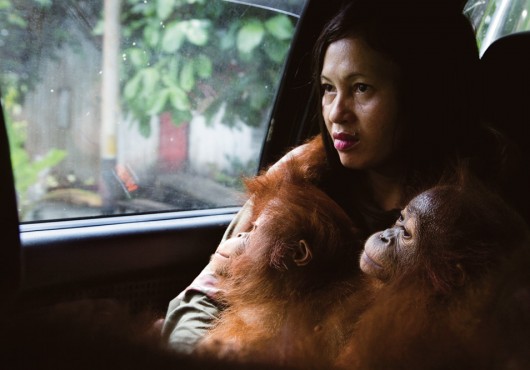 Forced eviction, forced immigration
Orang-Utan orphans fleeing their ravaged parents and their ravaged ancestral homes
Forced eviction, forced immigration
Orang-Utan orphans fleeing their ravaged parents and their ravaged ancestral homes
Present us an American citizen accepting of such home eviction!
.
ED: Cargill’s eco-rape and eco-plunder policy across Indonesia’s vulnerable Borneo (Kalimantan) demonstrates that Cargill’s above public relations spiel is clearly crap! This is a wealthy United States corporate exploiting a poor country’s precious rainforest ecosystems, buggering local indigenous peoples and driving the extinction of the endangered Orang-Utan. If you work for Cargill or have shares in Cargill yoiu may as well be associated with the arms suppliers to the Syrian president Bashar al-Assad and his regime.
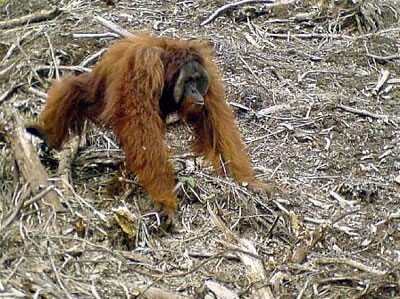 Not just home invasion, but complete ecological erasion
Cargill is calling in the A-Bomb to Orang-Utans
What United States citizen would tolerate this?
911 is being inflicted on vulnerable species by the United States
Not just home invasion, but complete ecological erasion
Cargill is calling in the A-Bomb to Orang-Utans
What United States citizen would tolerate this?
911 is being inflicted on vulnerable species by the United States
.
.
 Cargill’s worldwide president and COO Gregory R. Page
His life won’t end in devastation, but he drives devastation in vulnerable Kalimantan – in secret!
Cargill’s worldwide president and COO Gregory R. Page
His life won’t end in devastation, but he drives devastation in vulnerable Kalimantan – in secret!
.
Further Reading:
.
[1] ‘Villagers face off against palm oil firm’s bulldozers‘, by EIA, 20111123, ^http://www.eia-international.org/villagers-face-off-against-palm-oil-firms-bulldozers . [2] ‘Orangutan ‘killers’ on trial over slaughtering primates for pest control at palm oil plantation‘, by Damien Gayle, Daily Mail, 20120208, ^http://www.dailymail.co.uk/news/article-2097946/Orangutan-killers-trial-slaughtering-primates-pest-control-palm-oil-plantation.html

